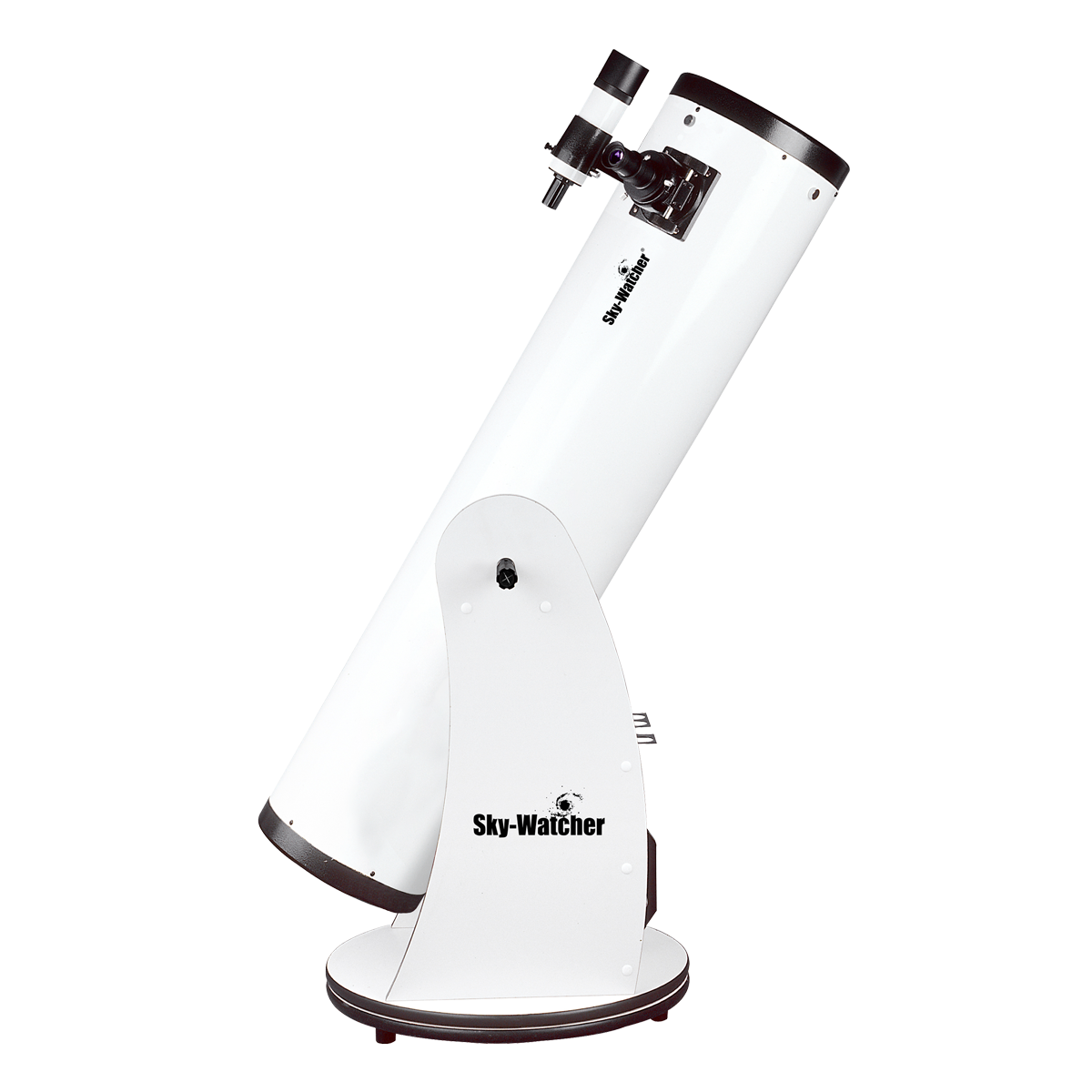
Classic 200P Dobsonian Features
- User level: beginner – intermediate
- Outstanding light gathering ability
- Super-smooth Azimuth movement
- Solid tube
- Tension control system
- 2″ Focuser with a 1.25″ adaptor
- 5 Years Sky-Watcher Limited Warranty
5 year manufacturer warranty (not transferable).
Classic 200P Dobsonian Description
Sky-Watcher Classic 200P DOBSONIAN Telescopes
The Ultimate Light Gatherer
The Dobsonian telescopes are named after John Dobson, an amateur astronomer who designed a very simple but effective telescope, where the key factor is a large aperture for little money. His idea was to mount a Newton telescope on an easy-to-use alt-azimuth mount that does not need time-consuming alignments.
The Sky-Watcher 8″ Dobsonian is a large aperture Newtonian reflector telescope with f/6 focal ratio, make it ideal for wide field and deep-sky observation. Big aperture means better light gathering power and with this Sky-Watcher Telescope you are able to see prominent deep-sky object such as nebulae, star cluster and many more. To top it off, the Sky-Watcher Classic Dobsonians are equipped with a 2″ Crayford focuser and focuser locking screw – to allow easy use of either eyepiece size.
Tension Control System
The Tension Control System allows you to adjust the friction setting; to increase or reduce the amount of resistance when moving the tube on the wooden mount, so you always have the appropriate resistance. The secret of the design is to correctly balance the optical tube with the specially designed handles (found on the base) and this adds enough friction and tension to allow the tube to move easily when nudged or to stay solidly in position.
In The Box:
- Finderscope 6X30 straight version
- Eyepiece 1.25″ Super 25mm (48x)
- Eyepiece 1.25″ Super 10mm (120x)
- Eyepiece adaptor from 2″ to 1.25″ with M42 thread
- 2″ Tube Extension
- User Manual
Optical Design
Newtonian (parabolic primary mirror)
The optical design of a telescope is a feature that defines what sort of observing the telescope is suitable for.
Optical Diameter
200mm
The aperture (diameter) of a telescope’s main lens or mirror. This describes how much light a telescope can grasp.
Focal Length
1200mm
The distance that the light has to travel between the aperture and the focal point. A smaller focal lengths will deliver a wider field of view.
F/Ratio
f/6
The relationship between the focal length and the aperture, larger f/numbers imply higher magnification.
Resolving Power
0.60"
The ability to clearly distinguish between two points whose separation is less than the smallest angle that your eye can resolve.
Stellar Limit Magnitude
12.9
The magnitude of the faintest object visible under zero light pollution conditions.
Highest Practical Power
400X
Exceeding the Highest Practical Power will result in a fuzzy image.
Light Gathering Power
816
How much brighter things will appear than what the human eye can see.
Focuser
2" Crayford with 1.25" adaptor
Wider focusers allow for a wider field of view.

